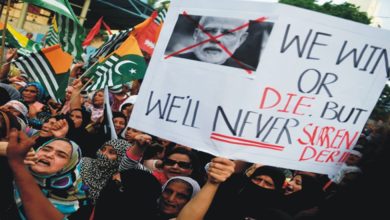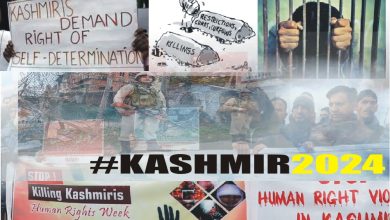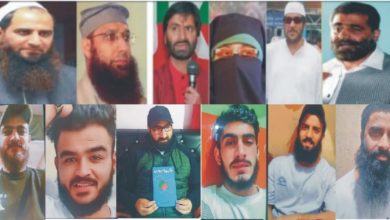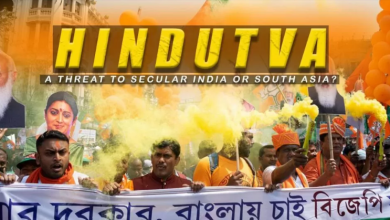 Islamabad: For over seven decades, Indian illegally occupied Jammu and Kashmir (IIOJK) has endured a fraught and volatile political climate, marred by severe human rights abuses perpetrated by Indian troops under the cover of draconian laws.
Islamabad: For over seven decades, Indian illegally occupied Jammu and Kashmir (IIOJK) has endured a fraught and volatile political climate, marred by severe human rights abuses perpetrated by Indian troops under the cover of draconian laws.
A report by Kashmir Media Service highlights the Indian government’s extensive use of controversial laws, including the Armed Forces (Special Powers) Act (AFSPA), the Public Safety Act (PSA), the Unlawful Activities (Prevention) Act (UAPA), and the Enemy Agent Ordinance (EAO) in IIOJK. The application of these draconian laws is aimed at stifling political dissent and perpetuating a climate of fear and repression in the occupied territory.
Reports from various human rights organizations paint a grim picture of the situation in IIOJK, highlighting a pattern of mass killings, enforced disappearances, torture, and suppression of free speech. These abuses are increasingly being linked to the legal framework imposed by the Indian government, which many argue is designed to stifle dissent and maintain control through fear.
The AFSPA has been particularly criticized for granting Indian troops extensive powers, including the authority to arrest and detain individuals without formal charges or judicial oversight. This law has been associated with numerous extrajudicial killings and other severe abuses, with troops often using it as a cover for atrocities against the Kashmiri population. The sweeping powers under AFSPA have led to widespread reports of violence and brutality, contributing to an ongoing climate of impunity for the perpetrators.
In addition to the brutality enabled by AFSPA, the PSA and UAPA have facilitated the arbitrary detention of civilians. Reports reveal that political leaders, activists, and ordinary citizens are frequently detained under these laws based on fabricated charges and dubious evidence, often as a means of political repression. The arbitrary and prolonged nature of these detentions is viewed as a form of political vendetta against those advocating for Kashmiri self-determination.
Human rights organizations such as Amnesty International and Human Rights Watch have condemned the use of these draconian laws, arguing that they not only undermine India’s democratic credentials but also perpetuate state terrorism. These laws are described as gross violations of international human rights conventions, with their implementation denounced as war crimes deserving of global scrutiny.
The international community has increasingly called for a thorough investigation into the abuses occurring under the AFSPA, PSA, and UAPA. Observers stress that these laws undermine fundamental human rights and freedoms, highlighting the urgent need for international intervention and reform to address the escalating crisis in IIOJK.
As occupied Jammu and Kashmir continues to suffer under the weight of these draconian laws, the call for justice and accountability becomes ever more urgent. Addressing the grievances of the Kashmiri people and safeguarding their fundamental rights are critical steps toward a more peaceful and equitable resolution to the long-standing Kashmir conflict. The global community’s role in advocating for human rights and holding those responsible accountable is essential in the pursuit of a just and lasting resolution to the conflict.








